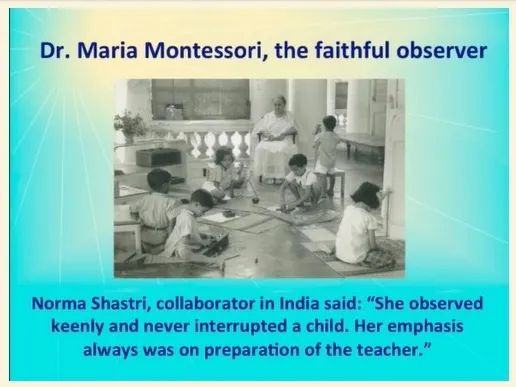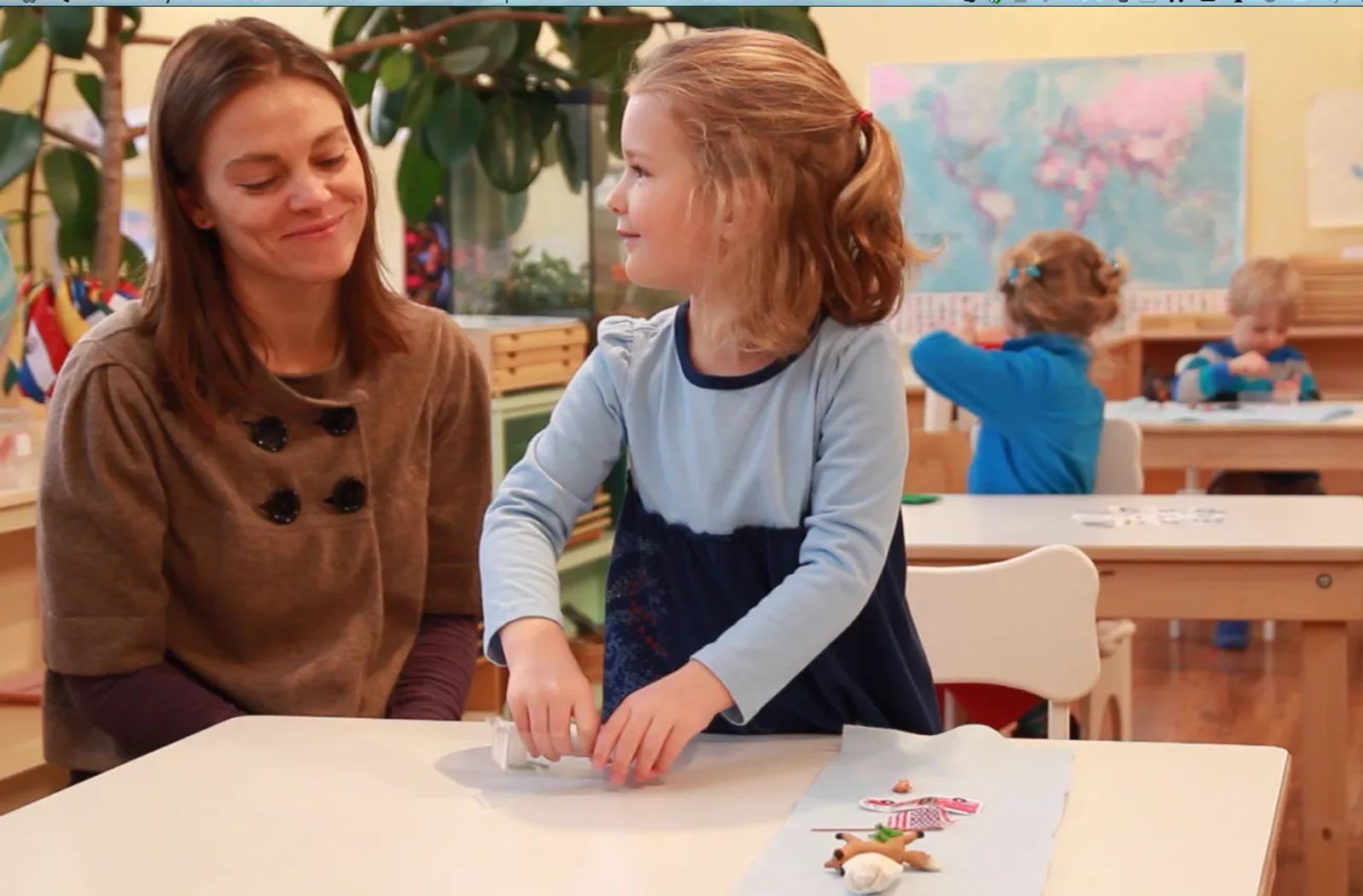Faithful Observation & Humility
I observed little children; I sensed their needs; I tried to fulfill them: they call that the Montessori Method. - Maria Montessori

For all our discussions about the Montessori Method, here’s the paradox: Maria Montessori did not approve of the term “method.” Rather than the inventor of an educational method, Maria Montessori considered herself to be the discoverer of a natural phenomenon. Her brilliant discoveries were based on a lifetime of keen observation. In essence, Maria Montessori learned how children learn from the children themselves.
The teacher must derive not only the capacity, but the desire, to observe natural phenomena. The teacher must understand and feel her position of observer: the activity must lie in the phenomenon. ~Maria Montessori

Observing children in their environment is a highly valued practice, both for teachers and for parents. Observation is an essential tool, used by the adult to follow the child. The goal of observation is to discover the child’s interests, needs, and abilities and then to adjust the child’s environment accordingly. As the teacher (and here I mean both parents as our children’s primary teachers and professional educators,) we must strive to hone our observation skills continuously and use them routinely.
The teacher's first duty is to watch over the environment, and this takes precedence over all the rest. Its influence is indirect, but unless it is well done there will be no effective and permanent results of any kind, physical, intellectual or spiritual. - Maria Montessori
How to Observe: the Basics
Think “fly on the wall.” Sit as still and silent as possible. This in itself can be challenging for many of us. In this fast-paced life, most of us are masters of multi-tasking. I, for one, feel like I’m doing nothing if I’m doing less than three things at once. So the thought of just sitting quietly, consciously immobile, can feel foreign in the extreme. But all that action means I could be missing my children’s cues. They may be sending out waves of information, subtle or blaringly overt, that I’m just too active to receive. So, slow down, be still, and observe.

Do not interject yourself into the environment. It is natural to want to provide directions or assistance instead of allowing children to direct themselves. It is important to observe without influencing the child or the environment. In fact, you can use the opportunity for a little introspection. For example, observe how often you are tempted to interrupt. Ask yourself if the interruptions are necessary. Observe what unfolds when you resist the urge to help. (Of course, this is assuming that the situation is not anything dangerous.)
Stay Objective. Detached observation can be a challenge, especially for us parents. We tend to bring our own bag of emotional connections and preferences to the table. It is therefore that much more important that we open our minds and observe without filtering lenses. Put aside your own ‘sense of self’ before you begin to work with your child. When pride and ego are cleared away, you will be more able to see what the child really needs.
“To be a good observer also takes humility, a humility that considers nothing too lowly to absorb our full attention and that desires that our children exceed us. Humility is the quality that replaces the pride of the adult ego that thinks that we are the ones that form the child, that our world is the world the child must conform to rather than perhaps considering that we can learn from the child” - Mary Ellen Maunz.
Would you like to learn more about Dr. Maria Montessori's brilliant discoveries? We welcome you to join Age of Montessori's available in our webinar library entitled Unifying Principles of the Montessori Educational Family. This webinar is a look into the history and the dynamic principles of Dr. Maria Montessori's life-changing message.




















